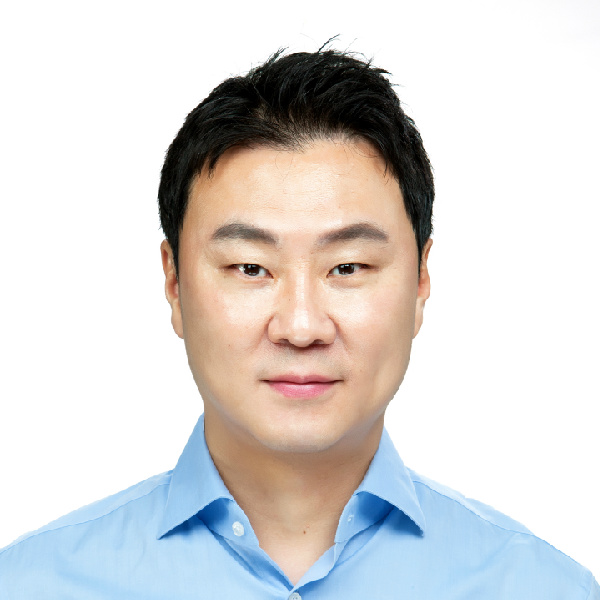[Dealmaker] Unison Capital shines in Korea’s niche sectors
Feb 15, 2020 (Gmt+09:00)
LG Chem to sell water filter business to Glenwood PE for $692 million


KT&G eyes overseas M&A after rejecting activist fund's offer


Mirae Asset to be named Korea Post’s core real estate fund operator


StockX in merger talks with Naver’s online reseller Kream


Meritz backs half of ex-manager’s $210 mn hedge fund


Middle market-focused Unison Capital Inc. stood out in South Korea’s buyout market in 2019 with two lucrative exits and two startup acquisitions in competition with global rivals such as KKR & Co. and the Carlyle Group.
The 350-billion-won ($300 million) divestment from milk tea brand Gong Cha generated a return of almost six times. From the exit of premium wedding hall operator Apelgamo Co. Ltd. for 130 billion won, it earned a 20% internal rate of return per annum.
Unison Capital also secured a controlling stake in 3D dental scanner maker Medit Corp. for 320 billion won in 2019. It had competed with two other shortlisted bidders KKR and Carlyle which ended up with no fresh acquisition in South Korea last year.
Its sector-focused approach and global growth strategy for target companies won the hearts of the startup founders, at a time when they were considering global expansion, or felt threatened by conglomerates’ move into their markets.
“Medit seemed to have acknowledged Unison Capital’s experience in growing the business of the former Taiwan milk tea brand Gong Cha not only in the domestic market, but also in Japan,” an investment banker said.
Regarding the acquisition of the country’s No. 1 online shoe store Sappun, another banker struck a similar note: “Sappun chose Unison Capital because of its track record of growing Gong Cha into a global brand.”
Sappun, which means “with a soft step” in Korean, has been growing market share fast in Southeast Asia and Taiwan since 2018. Unison Capital bought a controlling stake in the company for 35 billion won in 2019.
The founders of both Medit and Sappun with annual sales of 50-70 billion won had put controlling stakes up for sale to fund global expansion.
“When we narrow our list of target candidates, we put focus on global growth probability,” said Soomin Kim, who has been leading Unison Capital’s Seoul office since it opened in 2012.

Before Medit was put on the market, Kim, a former Bain & Company partner, had studied the dental service market for two years and then approached founder Min-ho Chang, a mechanical engineering professor of Korea University and advised on overseas growth.
The two startup buyouts were made from its second Korean blind-pool fund that closed at 500 billion won last year. National Pension Service, Korean Teachers’ Credit Union, Korea Post, and Public Officials Benefit Association committed to the fund.
BETS ON SHRINKING MARKETS
Unison Capital, with $4.1 billion in commitments under management, focuses on Japan and Korea. It targets controlling stakes in mid-cap companies in consumer retail service, niche manufacturing, healthcare and high-growth businesses.
In Korea, it became the first private equity firm acquiring a study space provider and a wedding hall operator, even when the birth rate and the number of marriages have been declining in Asia’s fourth-largest economy.
Since the acquisitions in 2016, the study space provider Toz and the wedding service firm Apelgamo had introduced standardized and quality services in systematic ways, as well as high-end interior features. They have been gaining share in the markets fragmented by mom and pop stores.
For Apelgamo, Unison made a bolt-on acquisition of a similar-size company to achieve the scale of economy in the market where large conglomerates are not allowed to enter.
“We put every effort into improving the operations. Additionally, our strategy of engaging the founder as a partner with a certain percentage of stake and growing the company in a partnership structure worked well,” said Kim, an ex-Goldman Sachs investment banker.
In 2015 Unison Capital raised its first Korean fund of 307 billion won, for which it had made five acquisitions - Gong Cha, Apelgamo, Toz, high-end European food importer Gourmet F&B and processed food wholesaler FND Net Co. Ltd.
Kim’s diligence and sincerity helped to buy Gourmet F&B.
He had made 70 visits to the restaurant run by the food importer in Seoul and had brunch every weekend there with his colleague to meet the founder. They even provided education consulting for his children.
Gourmet F&B finally sold a majority stake for 15 billion won to Unison in 2016 on the conditions of continued employment of his workers. The exit from the food importer in 2017 returned more than twice its investment and became Unison Capital’s first divestment in Korea.
In coming years, it is expected to look for two to three more acquisitions to deploy capital from the second Korean fund, while seeking to exit the two remaining assets - study space provider and food wholesaler – for the first fund.
Unison Capital has 15 investment managers, compared to KKR’s five-odd Seoul office as of late 2019.
By Chaeyeon Kim
why29@hankyung.com
Yeonhee Kim edited this article
-
 Real estateMirae Asset to be named Korea Post’s core real estate fund operator
Real estateMirae Asset to be named Korea Post’s core real estate fund operatorApr 29, 2025 (Gmt+09:00)
-
 Asset managementMirae Asset bets on China as Korean investors’ US focus draws concern
Asset managementMirae Asset bets on China as Korean investors’ US focus draws concernApr 27, 2025 (Gmt+09:00)
-
 Alternative investmentsMeritz backs half of ex-manager’s $210 mn hedge fund
Alternative investmentsMeritz backs half of ex-manager’s $210 mn hedge fundApr 23, 2025 (Gmt+09:00)
-
 Real estateRitz-Carlton to return to Seoul, tapped by IGIS Asset for landmark project
Real estateRitz-Carlton to return to Seoul, tapped by IGIS Asset for landmark projectApr 22, 2025 (Gmt+09:00)
-
 Real estateS.Korean gaming giant Netmarble eyes headquarters building sale
Real estateS.Korean gaming giant Netmarble eyes headquarters building saleApr 18, 2025 (Gmt+09:00)


